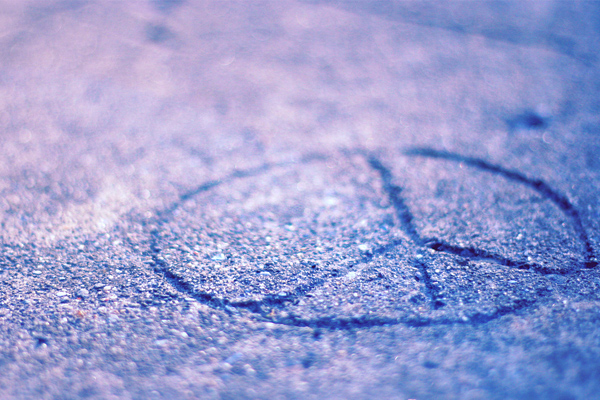
Why can’t we all just get along? Religion and Violence in the Middle East
- By Alison Lesley --
- 08 Oct 2014 --

Atheist and Theist perspectives on the rising tension and violence in the Middle East.
Escalating tensions in the Middle East point to religion as an exacerbating factor of the violence and unrest. Israel has been cracking down harshly on Palestinians in Gaza and the West Bank in the name of defense after the Palestinian group Hamas began lobbing missiles into Israeli territory in June. Both nations want full rights to the same land, saying it was intended for them by God when he gave it to Father Abraham.
Meanwhile, fundamentalist Muslim terrorist group ISIS is marching across Iraq, forcing conversions to radical Sunni Islam and beheading those who resist its brutal advance. Even Muslims from less extreme sects are lumped with the nonbelievers. And all sides claim God as their ally.
In light of this religiously-attributed violence, two primary responses have emerged. One is an increasingly cynical rejection of all things spiritual; the other believes religion really has less to do with the problem than human nature itself.
The atheist response:
The named areas of unrest are just two current examples of wars and violent wrongs that have been done for millennia in the name of God. Frustrated with months, decades, centuries, even millennia of violence and war in the name of spreading God’s kingdom, many conclude that God is the problem with humanity. If only we could wipe religious thinking from the earth, then overall this would be a happier place! Nobody would feel the need to wipe anyone else off the face of the earth, everyone could marry and live as they choose.
The problem is just a bit more sophisticated than this, because even an atheist understands that no matter whether a God exists, the very belief in one is enough to fuel the extremism we are watching on the news. So rather than spend time bickering over whose God is most correct, or likeable, or powerful, the most healthy approach humanity can take is to give up on the belief in a higher power.
The theist response:
On the other hand, it could be that humans are just naturally bent toward discord, chaos, and power plays. If so, this would be a disastrous time to turn away from the only thing that could help–a supreme being bigger and stronger than the enemy. Religious theists would remind doubters that God also sends people to be peacemakers and ambassadors of life. And while groups do continue to perform atrocities in God’s name, a lot of terrible things also happen without any affiliation to God. So the logic of “therefore all religion is bad” fails.
The strength of the theist lies in the understanding that evil is an actual force acting upon the earth, not just a construct of our emotions and desires. Evil, or less-than-ultimate-goodness, is an expression of the state of our world as it waits to be fully delivered by the Messiah. God does allow evil now, for reasons we only dimly understand. But this is not the way the world will be forever; God will defeat the evil when the time is right. And in the meantime, the religious are there in the darkest areas, holding up a light to help keep the darkness of religious extremism away.
Solutions
Really, everyone wants to know the practical answers. Talking about how the planet should give up faith in God, or how doubters just have to appreciate that God is bigger than we understand–those are not ideas with action points. How do we work toward reducing the horrifying violence bleeding off our news screens? Perhaps the best, more possible, path is to address and challenge the violently religious in terms they understand.
In August, the grand mufti, or head cleric of Saudi Arabia, disavowed ISIS and called it the prime enemy of Islam. This could look like pointing fingers. But it also can look like solidarity with other religions of the world, agreeing that what is being done in Iraq in the name of religion is inappropriately credited.
Religion was expected to die away as science exploded in the last 100 years. Yet it has actually grown in that time. The religious know that we are not all there is, that what we believe about reality is less relevant than what is actually true. By that standard, the evils of ISIS and the land wars in Israel are known by the great orchestrator, and those evils will have an end at their appropriate time.




















